

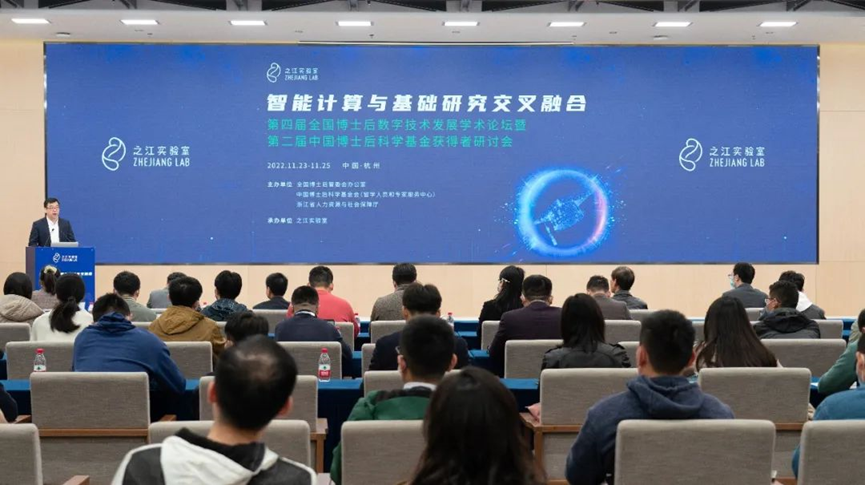
Co-organized by the Office of China Postdoctoral Council, China Postdoctoral Science Foundation and Zhejiang Province Human Resources and Social Security Department, and hosted by Zhejiang Lab, the 4th National Postdoctoral Academic Forum on the Development of Digital Technologies and the 2nd Academic Seminar for Recipients of the China Postdoctoral Science Fund were held on November 24, 2022. ZHENG Weimin, academician of the Chinese Academy of Engineering; WU Xindong, foreign academician of the Russian Academy of Engineering and senior research expert of ZJ Lab; XIONG Hui, professor of the Hong Kong University of Science and Technology; and other experts and scholars were invited to give an academic report. Nearly 200 postdoctoral researchers (i.e. postdocs) from well-known universities and research institutions at home and abroad attended the forum online and offline, and more than 15,000 people watched the academic reports of the forum through online live streaming.
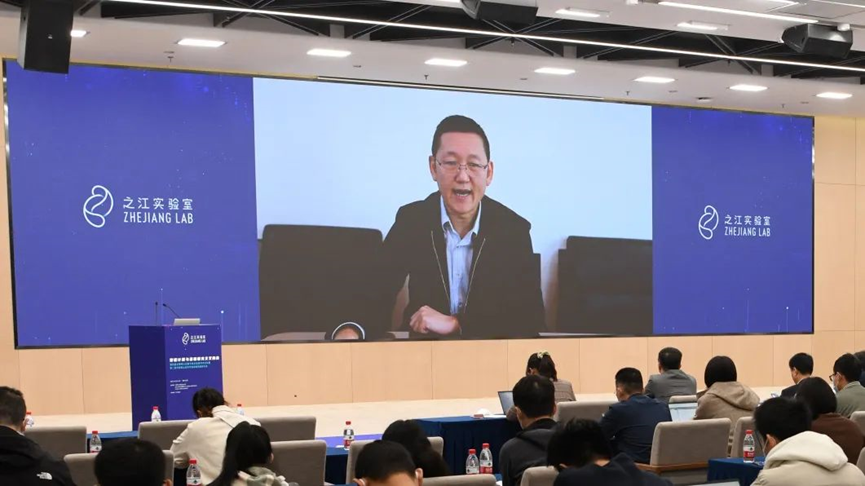
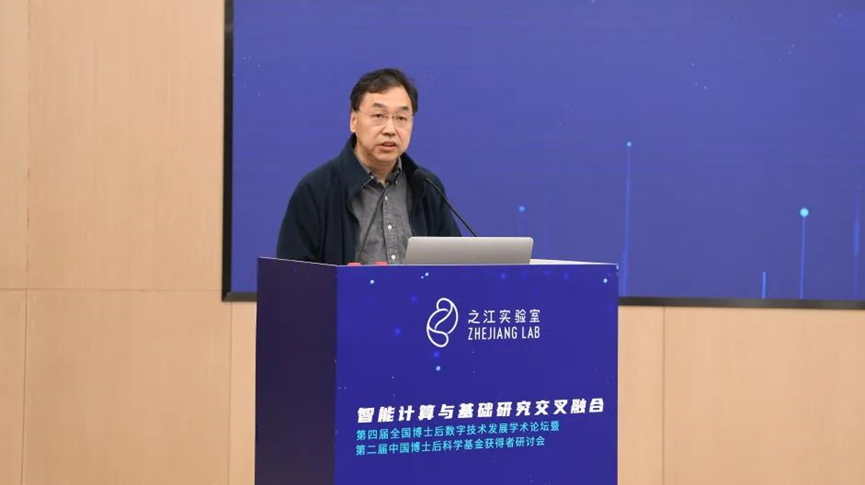
WANG Xiao, deputy director-general of the Overseas Students and Experts Service Center from the Ministry of Human Resources and Social Security, delivered a speech on behalf of the Office of China Postdoctoral Council and the China Postdoctoral Science Foundation. WANG Xiao said that ZJ Lab has hosted the National Postdoctoral Academic Forum for three consecutive years. It is a practical way of respecting talents, respecting creativity and promoting talent exchange, and has formed a good academic brand effect. It is hoped that the postdocs attending the forum will take intelligent computing as an important breakthrough in scientific and technological innovation, speed up interdisciplinary integration with fundamental research, carry out in-depth discussions and exchanges, open up innovative thinking, strengthen cooperation in tackling key sci-tech problems, and play a greater role in national scientific and technological innovation and economic development.
BAO Hujun, vice president of ZJ Lab, extended a warm welcome to the guests and postdocs on behalf of the Lab. He said that on the road of building ZJ Lab into a key hub of science and technology at a faster pace, postdocs have become an important force to drive the Lab's innovative development. ZJ Lab will, as always, attach importance to and support talent team building, gather resources from all sectors of society, and offer support to postdocs in multiple directions including policies, funds and career development, striving to build a post-doctoral talent team that features national prosperity, international vision and dedication to science, and consolidate the pool of young innovative talents in science and technology.
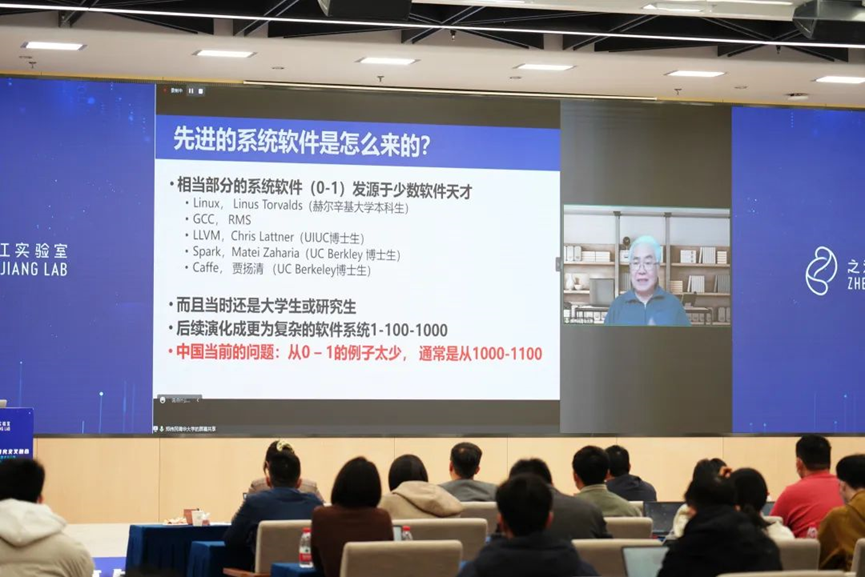
Academician ZHENG Weimin delivered a keynote speech entitled Achieving More "Zero-to-One" Breakthroughs: Encouraging Postdocs to Research and Develop Advanced System Software from Scratch. He shared Tsinghua University's successful experience in high-performance computing research by presenting seven cases, such as "MadFS: a High-performance Distributed File System", "zCore: the Kernel of Rust Operating System", and "Non-Volatile Memory (NVM) System", which fully demonstrates the innovation ability of Chinese young researchers to make autonomous and controllable advanced system software. Academician ZHENG Weimin emphasized that "R&D from scratch is not to modify packages using open-source software, but to start anew. Being advanced is never about making a system that is worse than existing open-source software or commercial products. It's about making it better than ever before."
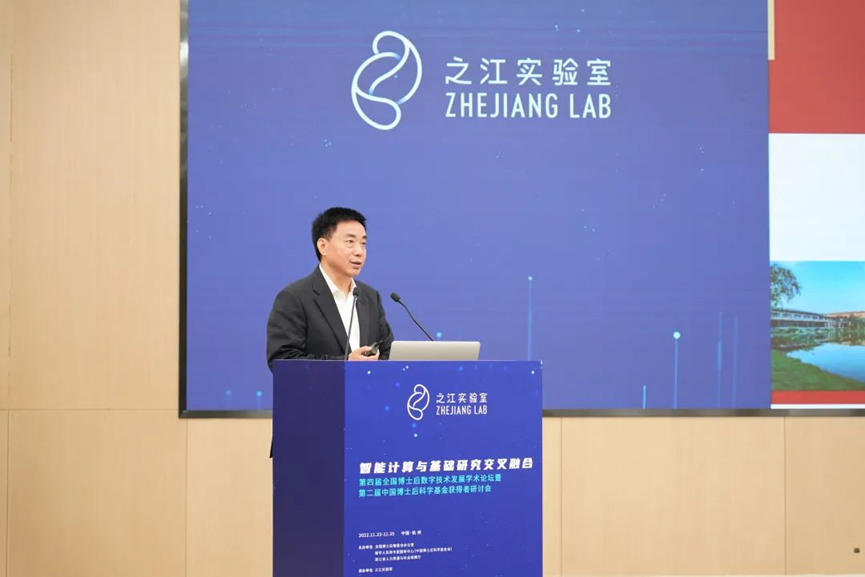
"Knowledge graph is critical to artificial intelligence and big data analysis, including knowledge ontology, identity graph and reasoning mechanism for problem solving." In his report, Academician WU Xindong said that the construction of knowledge graphs involves several techniques such as logical modeling, implicit spatial analysis, man-machine interaction (MMI) and ontology-based model supporting. By analyzing their advantages and problems, WU Xindong proposed the elements and major scenarios of an automatic knowledge graph construction system.
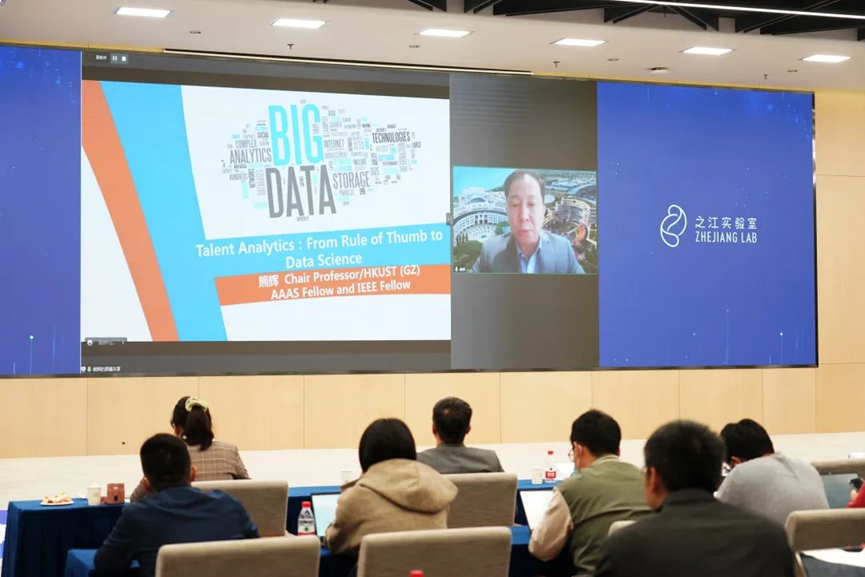
Professor XIONG Hui presented innovative big data technologies developed for intelligent talent management, based on which business leaders or talent educators and managers can make decisions by analyzing factors such as recruitment, performance evaluation, talent retention, talent development, job matching, team management, leadership development and organizational culture.
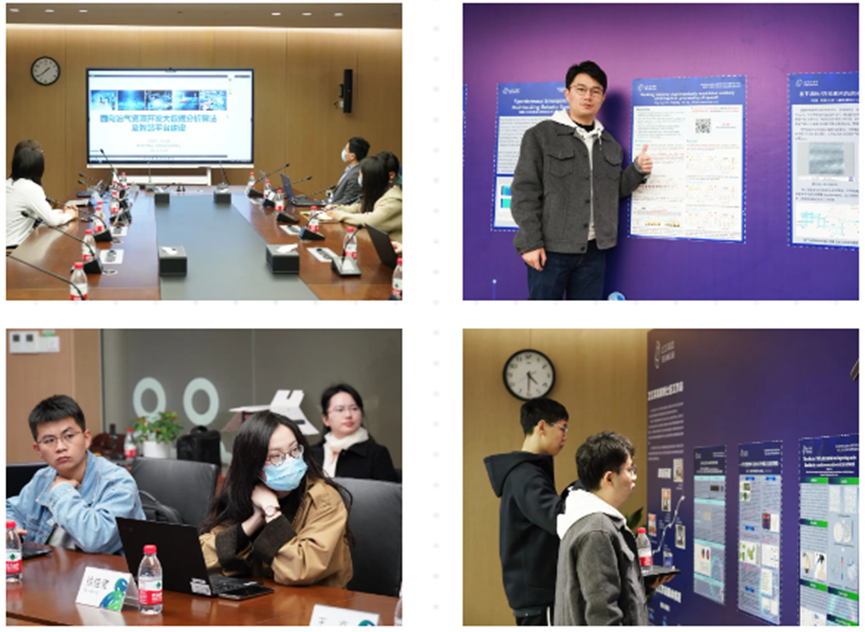
In addition to listening to experts' reports, the recipients of the China Postdoctoral Science Fund held seminars and academic achievement poster exhibitions on topics such as intelligent sensing, intelligent computing, artificial intelligence, intelligent networks and intelligent systems, and conducted in-depth exchanges and discussions regarding technical issues of common interest.

At the event, ZJ Lab officially released its postdoc requirements for bidders of technical demands on a global scale. A total of 57 technical demands were released. The Lab sincerely invites outstanding doctors and postdocs from all over the world to bid for the technical demands, and hope they can join ZJ Lab or cooperate with the Lab in carrying out scientific research projects.
URL: https://www.chinapostdoctor.org.cn/jblt/need/list
Contact Person: Ms. Li
Contact Number: 0571-58009370
Since the establishment of post-doctoral research center, ZJ Lab has made changes and improvements in post-doctoral talent attraction, development, retention and utilization mechanism. Up to now, more than 310 postdocs have been recruited, and 80% of the postdocs who obtain approval to leave the research center have stayed on the job. More than 130 programs funded by the China Postdoctoral Science Fund and the Young Scientists Fund of the National Natural Science Foundation of China have been approved. Nearly 20 postdocs have been selected into the Postdoctoral Innovative Talents Support Program organized by the Ministry of Human Resources and Social Security and international exchange programs. Each postdoc undertakes more than two scientific research projects on average. Over 50% of the recruited postdocs have been granted funded projects.











